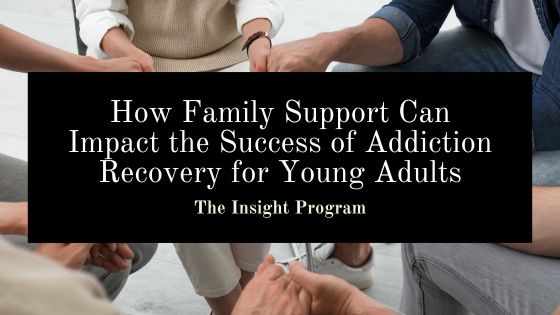Addiction recovery is often described as a journey, and for young adults, having family support along the way can make all the difference. Family members play a critical role in providing stability, encouragement, and a sense of accountability, all of which contribute significantly to the success of recovery. This support extends beyond treatment, helping young adults build a sustainable lifestyle that can support long-term sobriety. Let’s explore how family involvement impacts addiction recovery and some ways to foster a supportive environment.
1. Building a Foundation of Trust and Open Communication
Trust and open communication form the backbone of family support in addiction recovery. Many young adults struggling with addiction feel isolated, misunderstood, or judged. A supportive family environment that encourages honest conversations without judgment helps break down these feelings, creating a safe space where the young adult feels understood and accepted. This foundation of trust is essential because recovery involves vulnerable moments, difficult discussions, and emotional hurdles. When a young adult feels they can openly share their experiences and challenges with family, it fosters a stronger commitment to recovery.
To establish open communication, it’s important to listen actively and empathetically. Avoid interrupting or reacting with criticism, even if their actions have been hurtful in the past. Instead, focus on understanding their perspective and emotions. This can go a long way toward strengthening family bonds and showing your support meaningfully.
2. Offering Encouragement and Motivation
Addiction recovery is a long and often exhausting process, requiring dedication and resilience. For young adults, staying motivated can be particularly challenging as they navigate personal growth while dealing with the social and emotional struggles of early adulthood. Families play a crucial role in providing ongoing encouragement, reminding their loved one of their progress and goals, and celebrating each step forward.
Offering genuine praise for small achievements—such as attending meetings, reaching sobriety milestones, or making positive lifestyle changes—helps boost self-esteem and motivates the young adult to keep pushing forward. Family support can serve as a constant reminder that they are not alone in their struggles and that their efforts are seen and appreciated.
3. Providing a Stable, Supportive Environment
Recovery thrives in a stable and positive environment. Families can contribute to this by creating a safe, supportive home that fosters healthy routines, accountability, and self-care. By reducing exposure to stressors or triggers—such as avoiding alcohol in the home or limiting interactions with individuals who may encourage substance use—families help make sobriety more attainable and sustainable for their loved one.
For young adults moving back home after treatment, stability also involves establishing boundaries, routines, and expectations. Structure can help them adjust and build new habits that align with their recovery goals. Additionally, encouraging healthy activities, such as exercise, hobbies, and support group meetings, helps provide structure and positive outlets for stress.
4. Involving Family in Therapy and Support Groups
Many recovery programs and support groups offer family therapy sessions, which can help improve communication, address past issues, and foster a mutual understanding of addiction’s effects on the family unit. These sessions provide a structured space for family members to share their perspectives, which can be therapeutic for both the young adult in recovery and their family.
Attending family-specific support groups, like Al-Anon, can also provide valuable insights into the struggles of addiction from a loved one’s perspective. These groups offer guidance on setting healthy boundaries, managing expectations, and practicing self-care, all of which ultimately help families become a strong source of support without compromising their own well-being.
A Lasting Impact
Family support plays a transformative role in addiction recovery. By establishing open communication, providing encouragement, creating a stable environment, and engaging in therapy, families can help young adults develop a strong foundation for lasting sobriety. Recovery is a shared journey, and the compassion, patience, and dedication of family members can make all the difference as their loved one works to rebuild their life, one step at a time.

